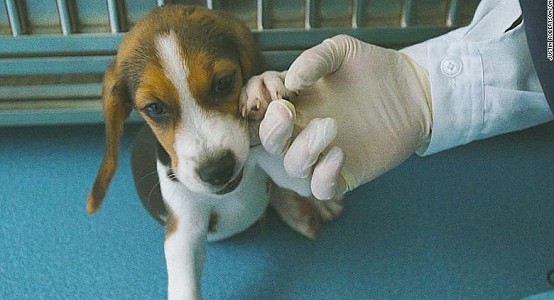Chinese scientists cloned a gene-edited dog to treat cardiovascular diseases

Almaty. December 26. Silkroadnews - Chinese scientists cloned a gene-edited dog to treat cardiovascular diseases, CNN reported.
“With his black, brown and white fur, Longlong looks like most beagles. But the puppy has been sick with a blood-clotting disorder since birth — exactly what scientists in China had wanted. The pup was cloned from Apple, a different dog whose genome was edited to develop the disease atherosclerosis,” the report said.
The creator of Longlong, the Beijing biotechnology company Sinogene, said that Longlong is the world’s first dog cloned from a gene-edited donor. With the birth of Longlong, China has matched South Korea, the leader in the technology of canine cloning. South Korean scientists were the first to clone a dog, an Afghan hound named Snuppy, in 2005.
“Sinogene have successfully cloned two more puppies in this manner, meaning the company now has four genetically identical puppies -- Apple, Longlong and two new canines, Xixi and Nuonuo,” the publication reads.
“Dogs share the most inheritable diseases with human beings, which makes them the best disease models to study,” the agency quoted Sinogene technical director Feng Chong saying.
According to Feng, when Longlong was created, scientists have for the first time combined two advanced biotechnologies: method of modifying CRISPR genes with the technology of cloning somatic cells - the method used to clone Dolly the sheep.
“Atherosclerosis, in which fatty material builds up and thickens artery walls, can cause heart attacks and strokes, and affects more than 15.8 million Americans alone. Cardiovascular diseases are the number one cause of death globally, killing 17.7 million people in 2015, according to the WHO,” the report reads.
The experiment caused protests by animal protection organizations and disputes about the ethics of such studies.
Sinogene, in turn, said about plans to clone working dogs, such as police dogs, guide dogs, and even ordinary pets to ensure the transfer of certain biological traits.


